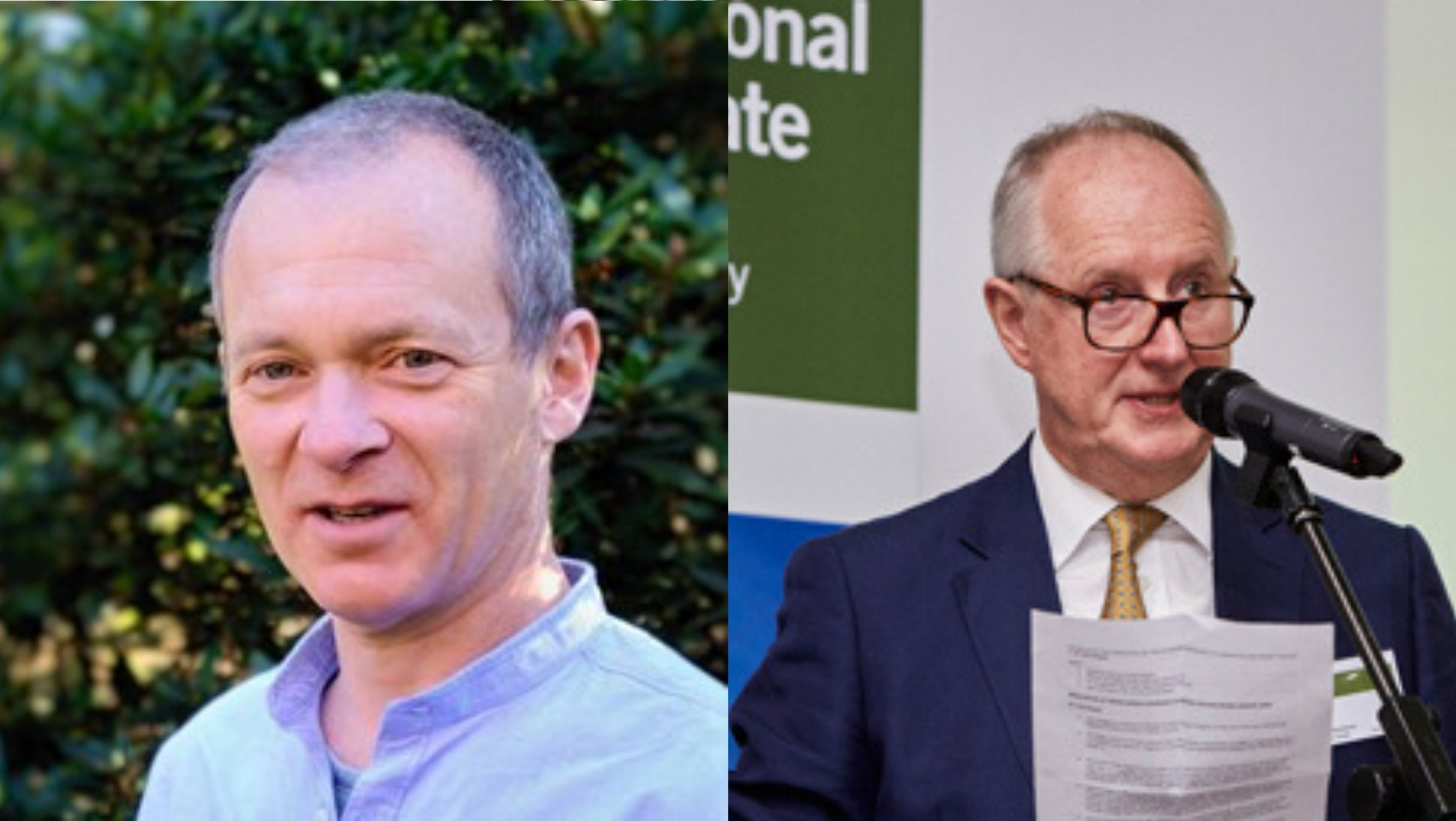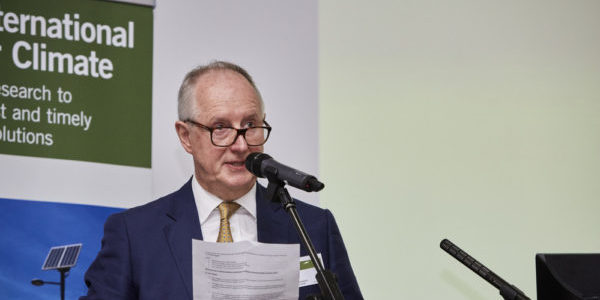Priestley professors elected to the Royal Society

Two University of Leeds professors from the Priestley International Centre for Climate have been elected to the prestigious Royal Society in recognition of substantial contributions to their fields.
Professor Oliver Phillips of the School of Geography and Professor John Plane of the School of Chemistry are among 62 exceptional scientists from around the world to have been elected to the Society this year.
Sir Alan Langlands, Vice-Chancellor of the University of Leeds, said: “Oliver Phillips and John Plane are both highly distinguished scientists in their own fields and their elections to the Fellowship of the Royal Society are richly deserved.
“They have global reputations for research excellence in two hugely important areas of scientific discovery and the whole University community congratulates them on being recognised by the oldest scientific academy in continuous existence, committed to the use of science for the benefit of humanity.”
Oliver Phillips, Professor of Tropical Ecology, has been honoured for his work focussing on the extent to which tropical forests are affected by climate processes, and how they can fuel further change in future.
This is an award to be shared. It reflects the tremendous contributions from many talented people I have been fortunate to work with over three decades, and all that we have achieved together.
By discovering how tropical forests and trees are not only sensitive to climate change, but also help to slow it, his work helps resolve major scientific uncertainties and influences efforts to manage and monitor forests in the face of climate change.
He leads a team of more than 100 researchers in Leeds, across South America, and elsewhere, to understand the behaviour of Amazonian forests in the changing earth system.
Professor Phillips said: “This is an award to be shared. It reflects the tremendous contributions from many talented people I have been fortunate to work with over three decades, and all that we have achieved together.
“It recognises the collective effort which is helping us to understand much better some of the world’s most precious ecosystems, including how they are responding to climate change and have helped to slow it.”
 Professor John Plane
Professor John Plane
John Plane, Professor of Atmospheric Chemistry, works on using experimental and theoretical physical chemistry to investigate phenomena in environments ranging from planetary atmospheres to dust formation around stars.
He has pioneered techniques for studying gas-phase reactions of metallic species, and is a world-leading expert on the chemistry of metals which ablate from cosmic dust particles in upper atmospheres.
I am delighted to have the research done by me and my co-workers at Leeds, together with wonderful collaborators around the world, recognised in this way.
He has also made significant contributions to understanding the chemistry of the Earth’s lower atmosphere – in particular iodine chemistry – using a combination of observations, laboratory studies and atmospheric modelling.
Professor Plane said: “I am delighted to have the research done by me and my co-workers at Leeds, together with wonderful collaborators around the world, recognised in this way.”
Welcoming Professors Phillips and Plane and the 2020 fellows, Venki Ramakrishnan, President of the Royal Society, said: “At this time of global crisis, the importance of scientific thinking, and the medicines, technologies and insights it delivers, has never been clearer. Our Fellows and Foreign Members are central to the mission of the Royal Society, to use science for the benefit of humanity.
“While election to the Fellowship is a recognition of exceptional individual contributions to the sciences, it is also a network of expertise that can be drawn on to address issues of societal, and global significance.
“This year’s Fellows and Foreign Members have helped shape the 21st century through their work at the cutting-edge of fields from human genomics, to climate science and machine learning.
“It gives me great pleasure to celebrate these achievements, and those yet to come, and welcome them into the ranks of the Royal Society.”
Fellowship is the most significant honour which can be given to UK scientists.
New fellows are elected to the Royal Society by existing members, already renowned experts in their field, making both professors’ appointment all the more significant.
For more details and the full list of newly elected Fellows and Foreign Members, visit the Royal Society website.
